Cyber fraud is becoming increasingly sophisticated.
In recent times, the Ministry of Information and Communications (MIC) has stepped up its activities to screen and detect fraudulent activities in cyberspace. In the first 6 months of 2023 alone, the MIC has coordinated with the Ministry of Public Security to handle many cases of using fake mobile base stations to send fake bank messages, send messages advertising "black" content in a number of provinces and cities, with the purpose of defrauding people's bank accounts or advertising "black" content such as prostitution, gambling, etc.
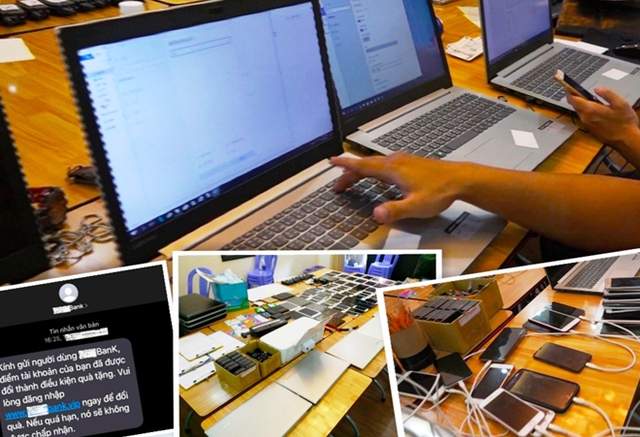
There are many common forms of fraud appearing on cyberspace. Illustrative photo
Authorities have detected and handled 15 cases of using fake mobile base stations. Of which, the Ministry of Information and Communications detected and coordinated with the Ministry of Public Security to arrest 11 cases, the Ministry of Public Security expanded the investigation to arrest 4 cases. In addition, the Department of Information Security (Ministry of Information and Communications) recorded, warned and guided the handling of 6,362 cyber attacks causing incidents to information systems in Vietnam, down 4.2% compared to the first 6 months of 2022 (6,641 attacks).
The Information Security Department also stepped up the activities of screening, detecting and handling online fraud websites in cyberspace. Directed and coordinated the blocking of 1,530 websites/blogs that violated the law (559 online fraud sites). Protected more than 2.7 million people from accessing online fraud websites that violated the law in cyberspace.
Send 430 warnings and instructions to fix serious weaknesses and vulnerabilities that pose a risk to information security for information systems. Monitor and analyze prominent information in cyberspace.
In many localities, the Department of Information and Communications of provinces and grassroots information systems have operated at a very high intensity, mobilizing all available means to transmit the most necessary information on preventing fraud on social networks and telecommunications networks to people, especially in some remote provinces where access to information is limited.
However, there are still some forms of fraud through social networks and telephones. One trick that is often used by criminals is to "place orders and make money online". The trick of these criminals is to post news and advertisements on social networking sites. When the victim contacts them to find a job, the criminals require them to pay for the order first and then receive the original amount plus a "commission" discount.

Guide to identifying 24 forms of fraud.
A successful order will receive a “commission” of 10% to 20%. For small value orders, the victim will first be paid with the promised “commission” to create trust. When the amount of money placed by the victim’s orders becomes larger, the subjects will use tricks and schemes to appropriate the victim’s property.
In addition to this form of online fraud, there are also scams through the form of learning how to get rich from network experts; online offerings to ward off bad luck; charity scams via social networks; impersonating network operators; bank employees; tricks of impersonating press agencies and television stations to scam...
Awareness and prevention of online fraud
In recent months, scams have continued to appear with the trick of downloading the "General Department of Taxation" app from a strange link to the phone, then the phone suddenly turns off, when it is turned on and the bank account is accessed, all the money is discovered to have disappeared.
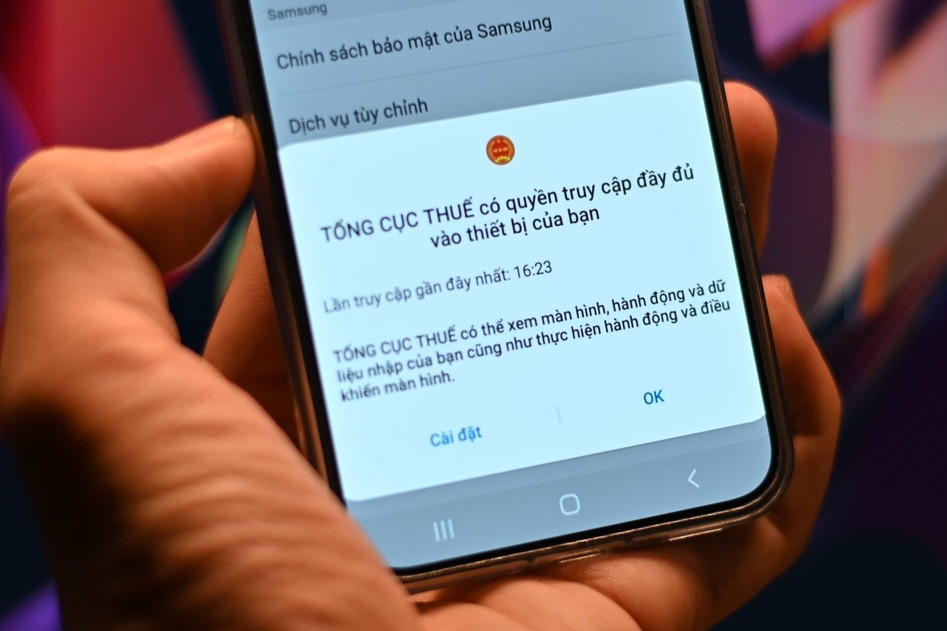
Fraudulent impersonation of Government applications, General Department of Taxation.
Ms. Khanh Thu, a business owner in Hanoi, said that after she had just returned from paying taxes, she received a phone call from a person claiming to be a district tax officer, asking her to download an app to make it easier to declare and pay taxes. Because it was not convenient to go there in person, she asked for online instructions. She was directed to a strange link to download the app. Then her phone was turned off, and a day later, when she went to the bank's app to transfer money, all the money in her account had disappeared. The bank determined that the money was transferred from her own phone.
Similarly, a victim in Quang Yen town, Quang Ninh province also lost 100 million in his account after installing the "General Department of Taxation" app through a strange link. Quang Ninh Provincial Police received the case and said they had received many similar reports.
At the press conference of the Ministry of Information and Communications at the end of July, Mr. Tran Quang Hung - Deputy Director of the Department of Information Security said that the shifting trend of online fraud groups, focusing strongly on the elderly, children, students, and low-income workers, has been clearly shown this year.
“As technology develops and smartphones become more popular, children, the elderly, students, and low-income workers now all have smartphones. However, the ability to recognize signs and fraudulent behavior of these groups is still quite low. Therefore, fraud groups have focused heavily on these groups,” Mr. Tran Quang Hung analyzed.
On the other hand, the Information Security Department also found that online fraud groups are no longer limited to Vietnam, but have mostly formed fraud organizations in neighboring countries such as Cambodia, Laos, and the Philippines. These groups also gather many Vietnamese people to participate, concentrated in facilities in these countries.
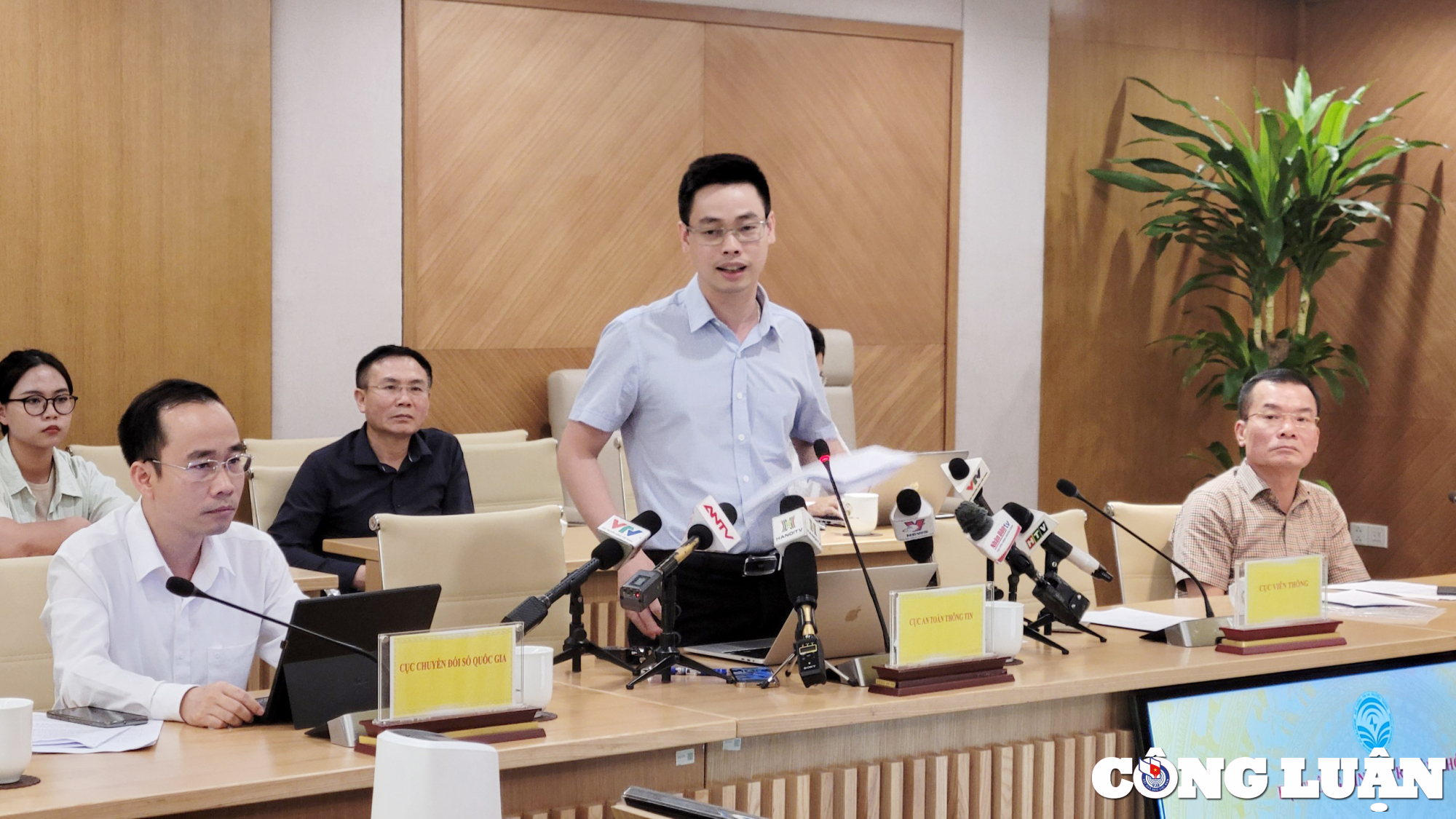
Deputy Director of the Department of Information Security Tran Quang Hung informed about the situation of online fraud and preventive measures. Photo: Le Tam
The leader of the Information Security Department said that propaganda, dissemination, and awareness raising to equip each individual with basic knowledge and skills to ensure information security in cyberspace is a key factor in creating a safe Vietnamese cyberspace, contributing to accelerating the digital transformation process and developing a sustainable digital socio-economic infrastructure.
It is known that in the coming time, the Ministry of Information and Communications will continue to launch the campaign "Action Month to propagate and identify online fraud". The campaign is deployed widely, contributing to raising awareness among people through clips of common online fraud situations, tips on how to identify fraud forms, and at the same time providing a handbook of knowledge to prevent and protect yourself and your family in cyberspace.
Source



![[Photo] Prime Minister Pham Minh Chinh receives Ambassador of the French Republic to Vietnam Olivier Brochet](https://vphoto.vietnam.vn/thumb/1200x675/vietnam/resource/IMAGE/2025/5/13/f5441496fa4a456abf47c8c747d2fe92)
![[Photo] Many people in Hanoi welcome Buddha's relics to Quan Su Pagoda](https://vphoto.vietnam.vn/thumb/1200x675/vietnam/resource/IMAGE/2025/5/13/3e93a7303e1d4d98b6a65e64be57e870)
![[Photo] President Luong Cuong attends the inauguration of the international container port in Hai Phong](https://vphoto.vietnam.vn/thumb/1200x675/vietnam/resource/IMAGE/2025/5/13/9544c01a03e241fdadb6f9708e1c0b65)
![[Photo] President Luong Cuong awarded the title "Heroic City" to Hai Phong city](https://vphoto.vietnam.vn/thumb/1200x675/vietnam/resource/IMAGE/2025/5/13/d1921aa358994c0f97435a490b3d5065)

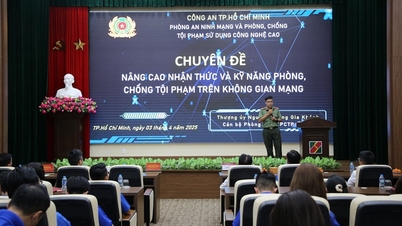


























































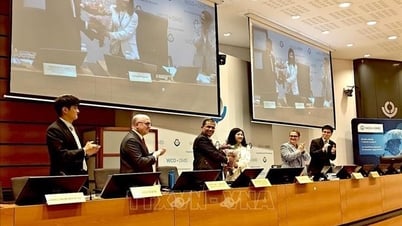





















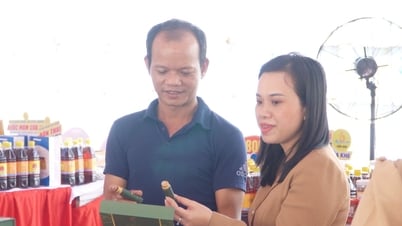

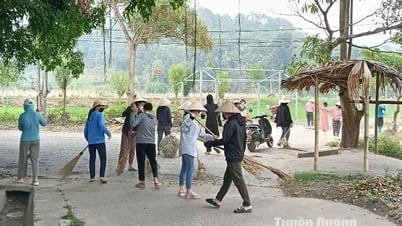







Comment (0)